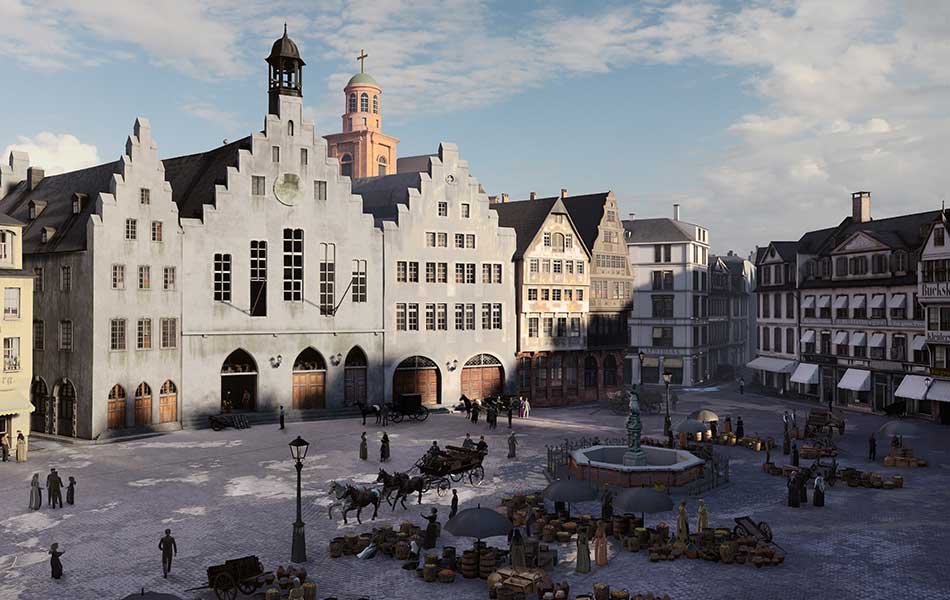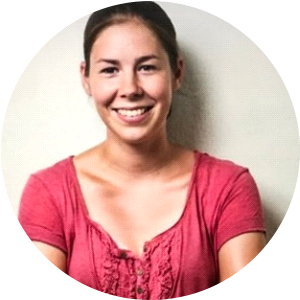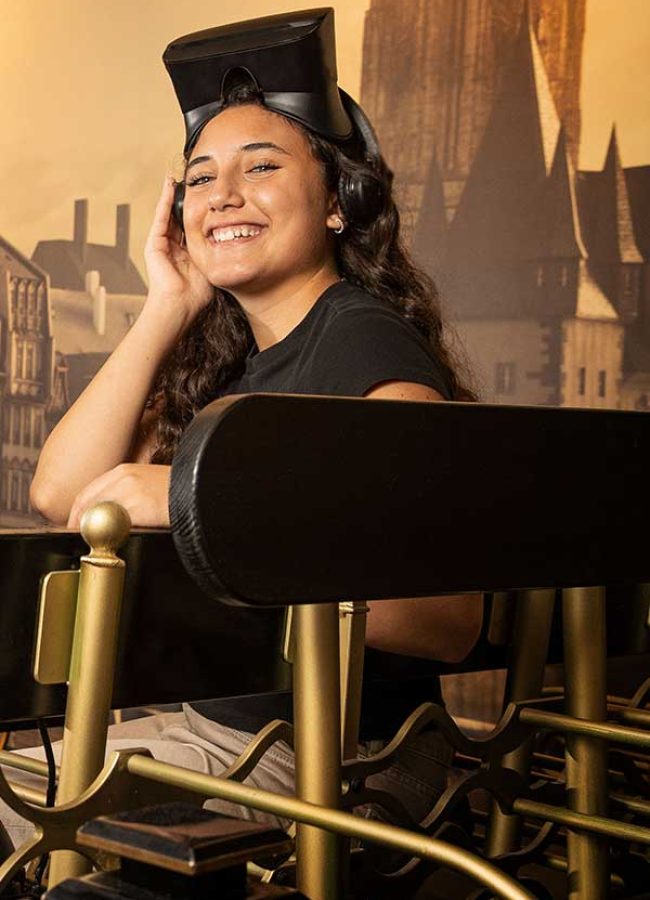TIMERIDE Blog
Nomen est omen - The Frankfurt Römer
The Römer: an Italian capital, a cooking pot, a wine glass and the town hall in Frankfurt. Did the Romans like to drink Äbbelwoi there while they cooked their Tafelspitz with Grie’ Soß and listened to the bells of St. Paul’s Church? No, neither the Roman glass nor the Roman pot have anything to do with the building. Both were invented much later, as the building has existed for over 700 years. So why is Frankfurt City Hall called the Römer?
From Katharina Heinrich
on 02.04.2024

Was the Roman named after the ancient Romans?
No. In the 2nd century there were. a Roman Military post on the cathedral hill near the Mainbut the memory of it was not so clear in the 14th century. so faded that no one named a house after them anymore. However, Italian merchants used the house in the Middle Ages when they were on a business trip. Trade fair were in the city. Since many Italy first to Rome it could be that the house was named after them.
Was the Roman named after the owners of the house?
No. The owners were called Romans because they lived in the Römer. Today, everyone at the birth a surname, but that was not the case in the past: there were only first namesuntil at some point there were too many with the same name and people had to personalize them. personalization their profession or the house name as surname to stand out from the crowd of “Elisabeths” and “Ludwigs”.
Was the Roman named after the Holy Roman Empire?
Yes. The Römer was the most luxurious stone house in the city in the Middle Ages, which is why even German kings resided here. These were entitled roman-German emperors, provided they were crowned by the Pope and were therefore rulers of the Holy Roman Empire. In addition, the house next to the Roman was called “Laderam”, which colloquially stands for the papal palace, the Lateran. The last emperor to celebrate here was a certain Franz Beckenbauer after the World Cup victory 1990. Also today celebrates Eintracht Frankfurt tournament victories here, most recently the 2018 DFB Cup victory.

Katharina Heinrich
studied classical archaeology and history, which is why she is particularly interested in ancient for ancient cultures and the origin of of objects, buildings and concepts. and concepts. During various excavations, she has learned how important even the the smallest and most inconspicuous objects can be for the history of mankind.
